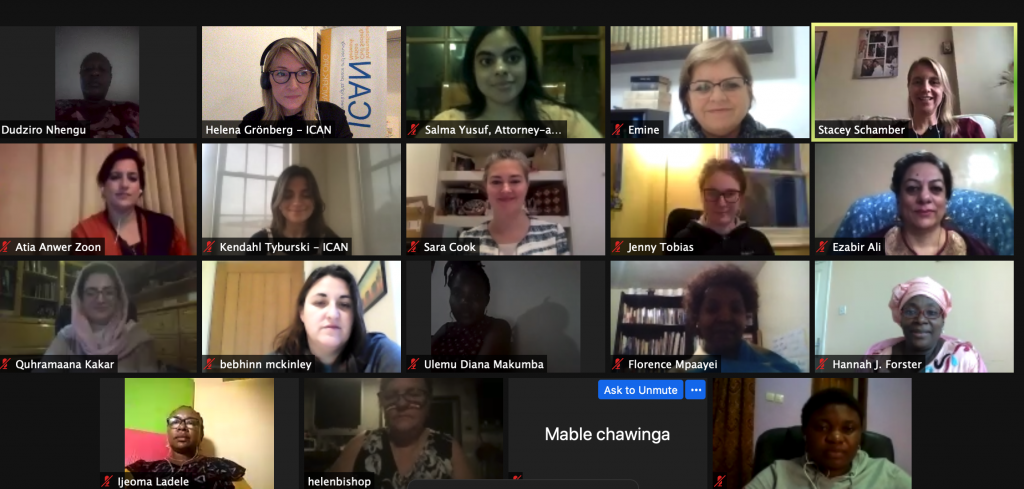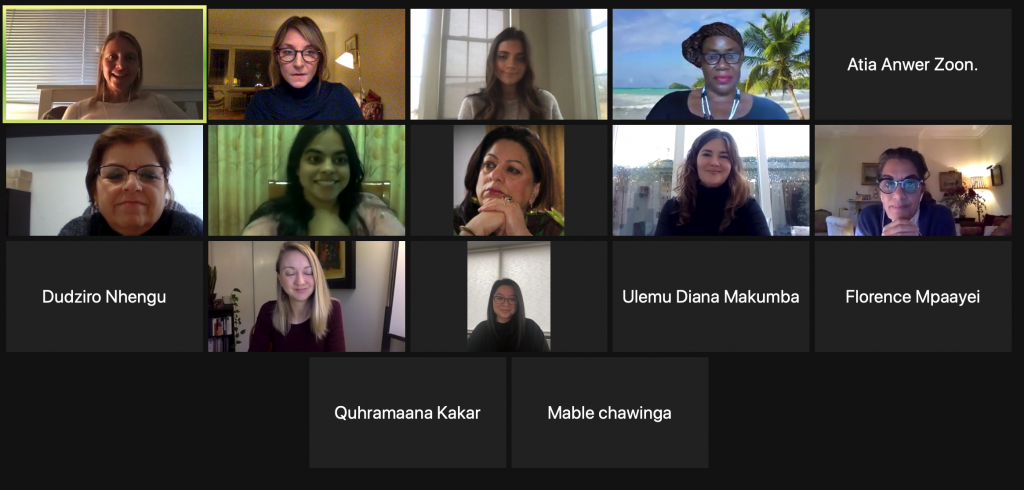

During three weeks in December the International Civil Society Action Network (ICAN), provided an 18-hour training on Gender Responsive and Inclusive Mediation to 16 members of the Women Mediators across the Commonwealth (WMC), a network hosted by Conciliation Resources. Representing Cameroon, Canada, Cyprus, the Gambia, Jammu and Kashmir, Kenya, Malawi, Nigeria, Northern Ireland, the Northern Territories of Australia, Sri Lanka, and Zimbabwe, the WMC members brought to the training an extensive array of experiences and contexts.
Part of ICAN’s Better Peace Initiative (BPI) the training explored the participation, representation, and recognition of women as peacebuilders and mediators in peace processes and how to ensure gendered perspectives in mediation and peace negotiations. Focusing on the topics of gender-responsive ceasefires, devolution, transitional justice, and how to build and sustain women’s coalitions, ICAN adapted its 2018 pilot training to respond to the interests of the WMC. The training was delivered virtually through a combination of presentations, discussion, visual explainers – animations, and simulations.
ICAN’s BPI Program Director Helena Gronberg and Senior Program Officer Stacey Schamber delivered the training, supported by program intern Kendahl Tyburksi. ICAN’s Founder and CEO, Sanam Naraghi Anderlini MBE, also a WMC member, joined select training sessions to share her experience and expertise on the various topics. Members of the Women’s Alliance for Security Leadership (WASL), Sabrina Mowlah-Baksh from Trinidad and Tobago, and Visaka Dharmadasa from Sri Lanka, both also WMC members, and Cerue Konah Garlo from Liberia, also joined to share their professional experiences. The participants valued the opportunity for collaborative learning through discussions that highlighted the uniqueness and similarities of their experiences across different contexts.
“I learned the importance of the social dimensions of transitional justice processes. In addition to the criminal and legal sides, the gendered and social dimension is the most important because women suffer the brunt of war processes. Men tend to hide behind the aspect of culture and tradition.”
– Dudziro Nhengu, Zimbabwe
“Supporting the organization of women’s peace coalitions is the missing piece in how we have tried to support peace processes, how to build out the action side of our policy agenda.”
-Nicole Waintraub, Canada
